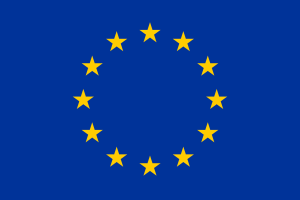‘Plague’ On sale now £9.99
Tags
Follow J.J.Anderson on Facebook
Follow J.J.Anderson on Pinterest
Archives
-
Recent Posts
Categories
http://www.thestorybazaar.com/rss.xml
Social
-
Privacy & Cookies: This site uses cookies. By continuing to use this website, you agree to their use.
To find out more, including how to control cookies, see here: Cookie Policy
A feast for the imagination


 RSS – Posts
RSS – Posts
Who rules Spain? Erm…..?
Still not entirely sure.
To recap – on 22nd January 2016 King Felipe VI proposed that Mariano Rajoy, leader of the PP, the party which garnered most votes in December’s General Election, should form a government. Rajoy turned him down. This prompted a frenzy of statements and counter-statements from other party leaders about whom they would support and whom they would not ( sometimes reversing previous stated positions ). Everyone tried to look statesmanlike, while negotiating like mad behind the scenes.
Election, should form a government. Rajoy turned him down. This prompted a frenzy of statements and counter-statements from other party leaders about whom they would support and whom they would not ( sometimes reversing previous stated positions ). Everyone tried to look statesmanlike, while negotiating like mad behind the scenes.
On the very same day the PP became the first political party to be formally charged in a corruption case – the Barcenas case ( an ongoing corruption case in which the former Treasurer of the PP allegedly managed a slush fund for bribes ) and since then there have been numerous financial scandals involving PP officials at regional and local level e.g. in Valencia and in Madrid. This becomes more like ‘House of Cards‘ by the minute.
On 2nd February King Felipe proposed that Pedro Sanchez form a new government. Sanchez accepted, giving himself three weeks to a month to put together a workable coalition. Everyone is now jockeying for position. Not least the two new parties, Podemos and Cuidadanos. The leaders of both these parties, Pablo Iglesias and Albert Rivera, respectively, fancy themselves as king-makers, not to say the power behind the throne. The smaller parties, like the Basques and Catalans, are stating their price, a price which could see Catalonia gain independence and the Basques a new political settlement. Does a putative Prime Minister gain power at the cost of the break-up of the Spanish state, which has existed, in broadly the same territorial form since the days of Fernando and Isabel? Weighty questions.
Three weeks have now passed. Something has to happen soon. The parties of the left meet today to try to reach a solution. Watch this space.
At least the Spanish people know the political programmes of the parties and have signalled in various polls that they want a compromise. The turnout at the Election was 72%, so the Spanish electorate is still engaged in politics.
Meanwhile in the UK we sleepwalk towards a major decision as the referendum on whether or not the UK remains part of the European Union grows ever closer. Maybe now that the date has been formally announced we can get some clarity. So far the loudest voices are the Brexiters, amplified still further by most of the English press with inflammatory and usually inaccurate headlines. The ‘Out’ politicians have the easier job. It’s always easier to be negative and criticise and the British public has been fed a diet of half-truths and downright lies about the EU for decades.
grows ever closer. Maybe now that the date has been formally announced we can get some clarity. So far the loudest voices are the Brexiters, amplified still further by most of the English press with inflammatory and usually inaccurate headlines. The ‘Out’ politicians have the easier job. It’s always easier to be negative and criticise and the British public has been fed a diet of half-truths and downright lies about the EU for decades.
No-one has yet made the positive case for remaining as well as rebutting the arguments of the ‘Out’ers. The ‘Remain’ camp has concentrated thus far on the scare tactics used to such effect in the Scottish referendum last year. Part of the problem is that it has suited the political elite of all parties to ignore the EU issue, often allowing the EU to be blamed for UK decisions and responsibilities, wrapping themselves in the national flag to curry favour with voters, secure in the knowledge that no-one would know otherwise.
Most people are intelligent enough however, to understand that they need to know more than they are being told by the national press. But where to find the information? Will the BBC provide accurate, unbiased information, please ( for once, they will have the PM and Chancellor on side ). The European Union has a good website, including educational materials and a Press Room. The Euromyth busting section is usually quite fun, though the ‘EU in the Media’ section seems sadly behindhand at the moment. Here’s hoping the British public get themselves informed enough to make a balanced judgement.
For the Catalan crisis (October 2017) see Homage to Catalonia
If you enjoyed reading this article you may also enjoy A New Sort of Politics Ring in the new Hello, Prime Minister, we need to talk…. Democracy III Democracy IV So what happened next….?
Share this:
Posted on 22nd February 2016 by juliej Leave a comment
This entry was posted in Political comment and tagged Political comment. Bookmark the permalink.